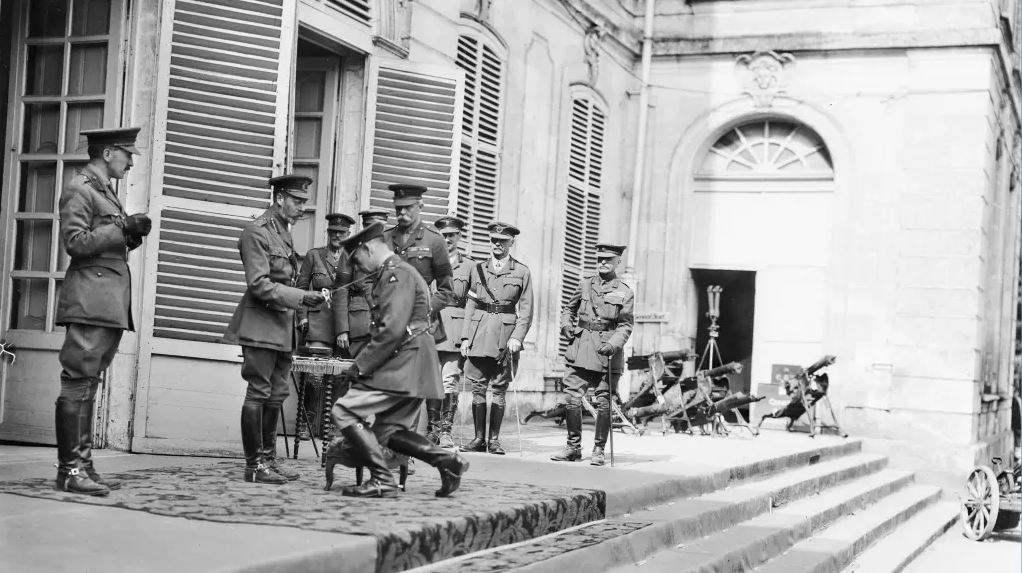Sir John Monash, widely credited with devising strategies that turned the surge of World War I against the Germans after years of death-dealing stalemate, was the first military commander in 200 years to be knighted on the field of battle.
He was so revered by Australians that 300,000 people turned out for his funeral in 1931 and 10,000 returned soldiers led his casket mounted on a gun carriage through the streets to Melbourne’s Brighton cemetery.
He was, however, never elevated to the giddy rank of field marshal. It was a curious omission after King George V had travelled to the Western Front, bearing the honour the king, immensely impressed with Monash’s efforts at crushing the Germans at Hamel, Amiens and the Hindenburg Line, had personally upgraded from Knight Commander of the Bath to the more distinguished Knight Grand Cross in the Order of St Michael and St George.
Still, Monash, a Jewish man of Prussian heritage, was himself familiar in life with the brush-off.
Australia’s official war historian, C.E.W. Bean, who wrote of Monash as a “pushy Jew”, and Rupert Murdoch’s father, Keith Murdoch, conspired during the war to try to prevent Monash winning the active command of Australian forces on the Western Front. Murdoch later opposed Monash’s efforts to build the Shrine of Remembrance in Melbourne.
Historian Roland Perry, author of Monash: The Outsider Who Won a War, once put it bluntly: “Bean didn’t like Monash because he was Jewish. Murdoch didn’t care whether he was Jewish, gypsy or geranium; his motive was that he couldn’t manipulate him.”
Read the article by Tony Wright in The Sydney Morning Herald.

